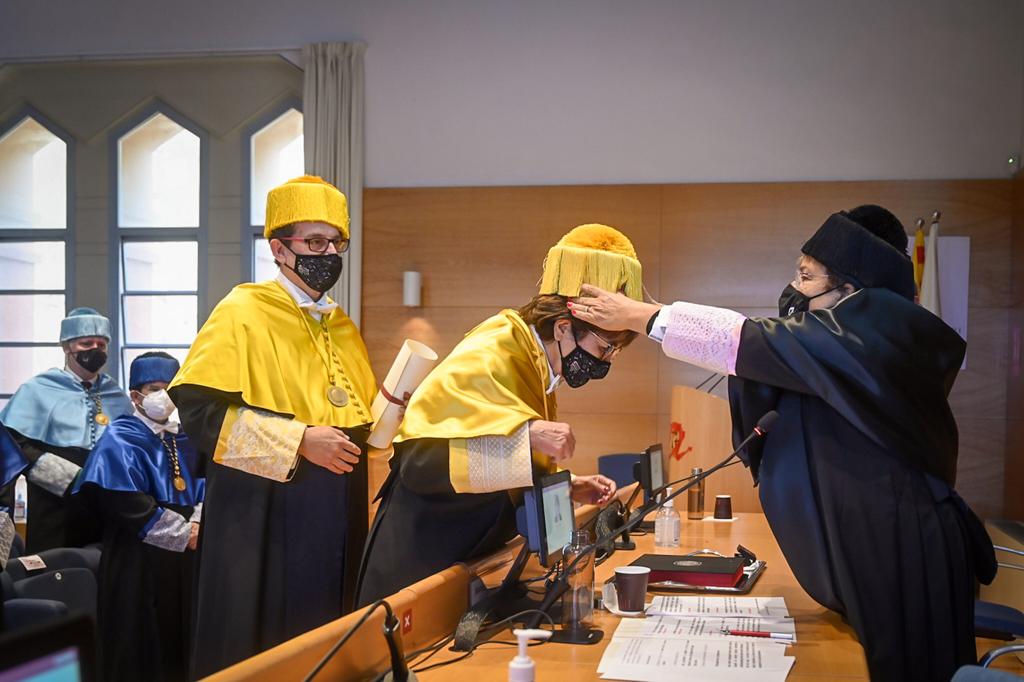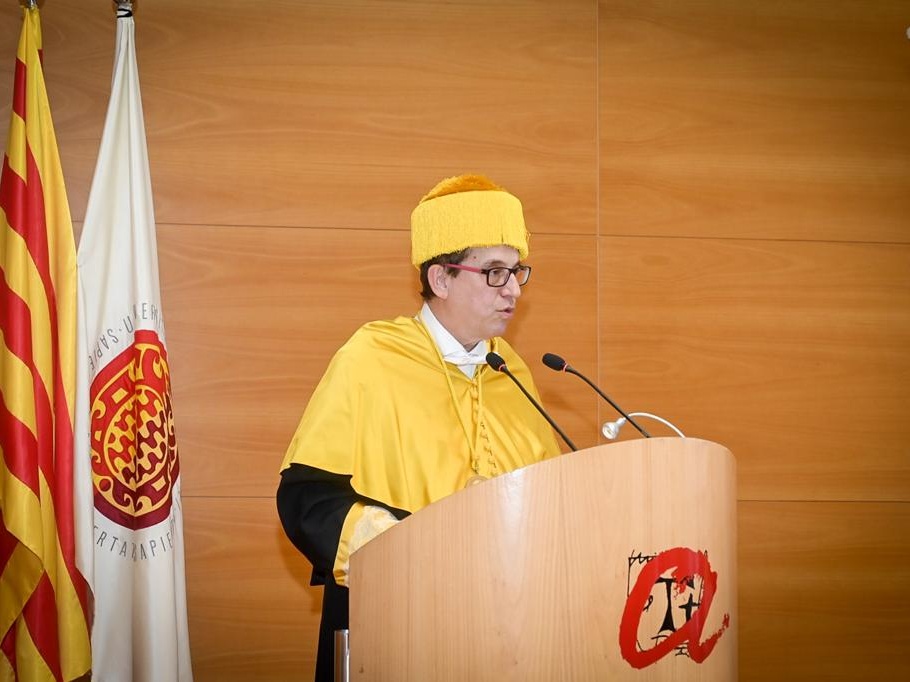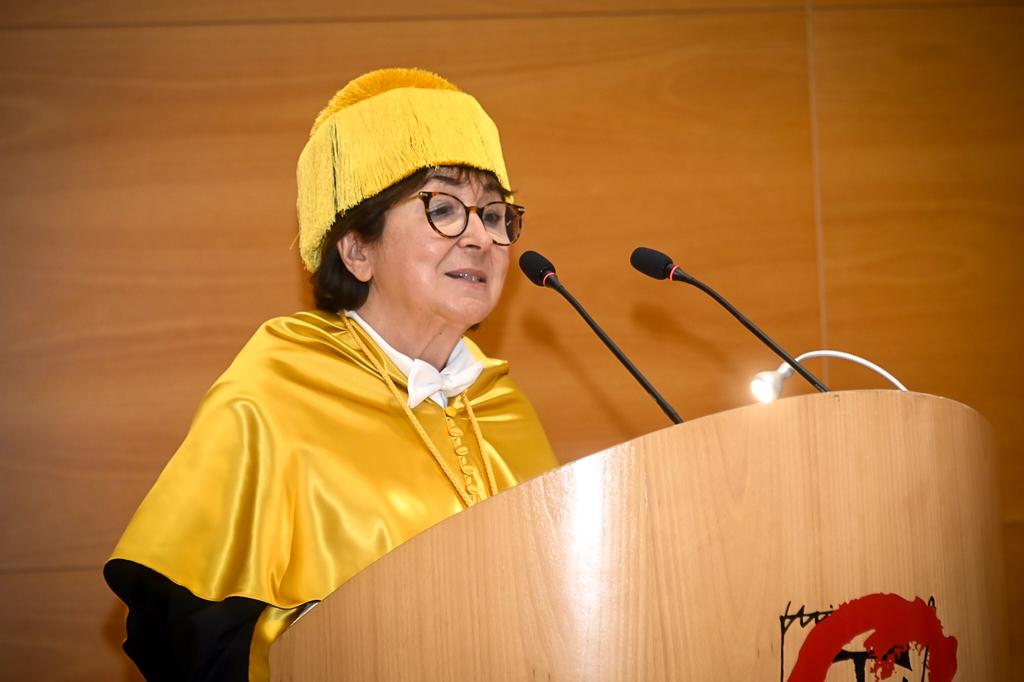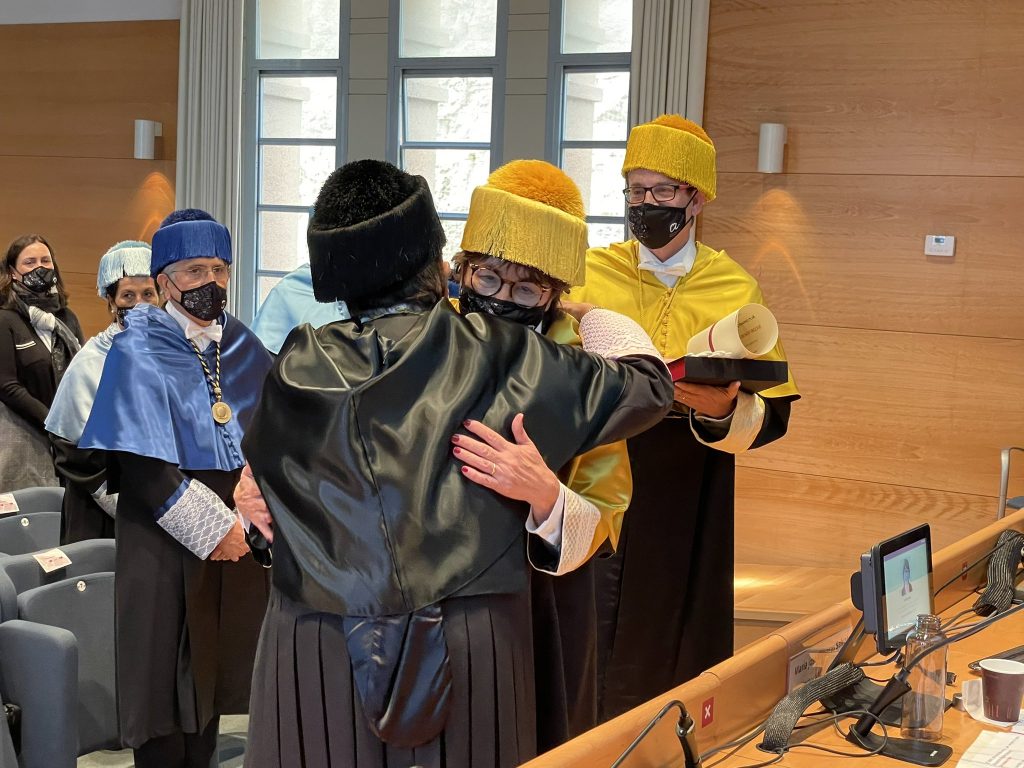Press notes 12/11/2021
The URV awards an honorary doctorate to Pilar Galán, whose research has established the scientific basis for reducing the prevalence of chronic diseases through nutrition
Pilar Galán has helped create a bank of biological samples for understanding the mechanisms involved in the relationship between food and cardiovascular disease, cancer, obesity and diabetes and has launched food labels containing nutritional information.

Pilar Galán has helped create a bank of biological samples for understanding the mechanisms involved in the relationship between food and cardiovascular disease, cancer, obesity and diabetes and has launched food labels containing nutritional information.
The work carried out by Pilar Galán over her career has contributed decisively to changing our understanding of the role that nutrition plays on our health and the risk of developing chronic diseases. Together with the research team of the National Research Institute for Agriculture, Food and the Environment (INRAe), of the Research Team in Nutritional Epidemiology of the Université Sorbonne Paris Nord, which she directs, she has carried out observational and interventional epidemiological studies to clarify the mechanisms involved in the relationship between nutrition and chronic diseases such as cardiovascular disease, cancer, obesity and diabetes. In doing so, she has established the scientific basis for public health policies that affect food.
In recognition of her work in improving public health, Pilar Galán was awarded an honorary doctorate by the Universitat Rovira i Virgili on 12 November. She was sponsored by the head of the URV’s Human Nutrition Unit, Jordi Salas-Salvadó, and she is the ninth woman to receive the award out of the 47 honorary doctorates awarded by the URV to date. Galán referred to this issue by pointing out that in university or public research “the higher up we look in the hierarchy, the fewer women we find”, and in terms of her own position, she said “When I was promoted to first-class research director in 2010, only 11% of these senior positions were held by women.”
According to Dr Salas-Salvadó, hers is a story marked by the tenacity and determination that she first demonstrated when she arrived from Teruel during the Franco dictatorship intending to study at the pilot experimental institute of the Autonomous University of Barcelona, known for its leftist ideas, a tenacity that she showed again during her work as a medical student in the Dietetics Service of the Hospital de la Santa Creu i Sant Pau, where she learned about the nutritional problems suffered by the ill. This was during the 1980s, a time when research into nutrition in Spain was just starting and there were still virtually no research or training opportunities in this field. Consequently, she went to Paris, where she discovered the population approach to nutrition, public health and prevention, in all its biological, medical, social, cultural, economic and political dimensions.

It is this approach that has guided all her research work, which in turn has caused nutrition studies to evolve from concern about nutritional deficiencies to addressing the causes and consequences of changing eating habits in industrialized countries. This situation, paradoxically generated by economic development and technological advances, has led to an increase in the prevalence of diseases that have not only physiological and genetic causes, but also environmental ones, such as food and physical activity, and which represent a significant cost in human, social and economic terms. As Galán pointed out during her inauguration speech, “in Spain, 4 out of 10 children aged 6 to 9 are overweight” and in France “the direct and indirect costs attributable to cardiovascular disease are estimated to be 29 billion euros a year”.
Hence the importance of her research and its influence on public health policies. During the investiture speech, Galán looked back at the studies that she has led or participated in and that have had the greatest impact in terms of public health, one of which was the SU.VI.MAX, which followed 13,000 participants for 8 years and showed how the daily consumption of antioxidant vitamins and minerals found in fruit and vegetables reduced the risk of chronic diseases (31% risk of cancer) and mortality (37%). This in turn led to the advice for the general population to consume at least 5 fruits and vegetables a day.

Promoter of Nutri-Score labeling
The NutriNet-Santé cohort was launched in 2009 with more than 170,000 volunteers and has made it possible to study the relationship between the consumption of organic and ultra-processed foods and diseases and the effectiveness of public health actions such as nutritional labelling and recording of sugary drinks. This led to the nutritional logo Nutri-Score, which has already been implemented in 7 countries and is located on the front of food products to translate the nutritional content of food into a visual language and thus help consumers make a healthier shopping choices and pressure companies to improve the transparency and nutritional value of their products.
Galán is a strong supporter of this logo, which has been criticised by pressure groups in the agri-food sector. Her response, however, is that “science is the best answer when pressure groups try to obstruct public health actions. It is clear that when devising public health policies, politicians must base their decisions only on conclusive scientific data. Researchers must fight to impose this way of guiding public policy”, she concluded.
Galán is a leading figure in nutritional epidemiology and has helped blaze the trail followed by many scientists after her, alongside Serge Hecberg, her professional and life partner, to whom she directed an emotional aside. It was as leaders in their field that they established the scientific relationship with the Human Nutrition Unit of the URV, headed by Jordi Salas-Salvadó. As her sponsor for the honorary doctorate, he highlighted the key role Galán has played in his discipline by promoting projects such as the biobank of the NUTRINET-Santé study, “which contains no fewer than a million biological samples which will help us to understand, in the future, the mechanisms that exist in the associations that her work has demonstrated”.

The rector, María José Figueras, added that Pilar Galán “is an important example for our University not only for her ability to revolutionize nutritional epidemiology, but also for her ability to transfer her knowledge to the community”. Galán has increased the recognition of the team of researchers who have worked with her over time.
To mark the new doctor’s acceptance into the scientific community of the URV, the rector presented Galán with her honorary doctoral degree certificate, her medal and her biretta, along with the objects that commonly accompany the distinction, namely the book of science and wisdom, the ring symbolising the privilege of being able to stamp scientific and professional findings, and the white gloves.
You can visit the honorary doctors website to download Pilar Galán’s résumé, the sponsor’s speech in support of her candidacy, her lecture of investiture and the words of welcome from the rector.
